Trip hop is a musical genre that originated in the late 1980s in the United Kingdom, especially Bristol. It has been described as a psychedelic fusion of hip hop and electronica with slow tempos and an atmospheric sound, often incorporating elements of jazz, soul, funk, reggae, dub, R&B, and other forms of electronic music, as well as sampling from movie soundtracks and other eclectic sources.
Jazz fusion is a popular music genre that developed in the late 1960s when musicians combined jazz harmony and improvisation with rock music, funk, and rhythm and blues. Electric guitars, amplifiers, and keyboards that were popular in rock and roll started to be used by jazz musicians, particularly those who had grown up listening to rock and roll.

Endtroducing..... is the debut studio album by American music producer DJ Shadow, released on September 16, 1996, by Mo' Wax. It is an instrumental hip hop work composed almost entirely of samples from vinyl records. DJ Shadow produced Endtroducing over two years, using an Akai MPC60 sampler and little other equipment. He edited and layered samples to create new tracks of varying moods and tempos.
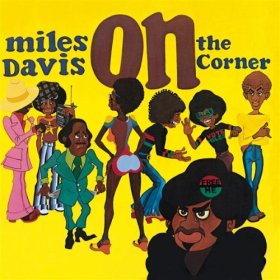
On the Corner is a studio album by the American jazz trumpeter, bandleader, and composer Miles Davis. It was recorded in June and July 1972 and released on October 11 of that year by Columbia Records. The album continued Davis' exploration of jazz fusion, and explicitly drew on the influence of funk musicians Sly Stone and James Brown, the experimental music of Karlheinz Stockhausen, the free jazz of Ornette Coleman, and the work of collaborator Paul Buckmaster.

Robert Lrod Dorough was an American bebop and cool jazz vocalist, pianist, and composer. He became famous as the composer and performer of songs in the TV series Schoolhouse Rock!, as well as for his work with Miles Davis, Blossom Dearie, and others.
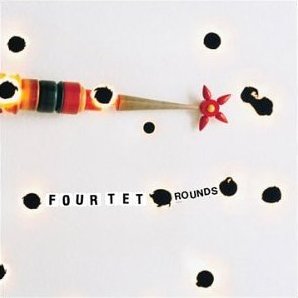
Rounds is the third solo album by British electronic musician Kieran Hebden, released under his alias Four Tet on 5 May 2003 by Domino Recording Company. Wanting to make a more personal record, Hebden recorded and produced the album in his North London flat over ten months using a desktop computer and a home hi-fi system. Its ten tracks feature elements of hip hop, jazz and folk; apart from a guitar part recorded for "Slow Jam", the music is composed from between 200 and 300 samples, many processed beyond recognition.

Songs of Innocence and of Experience is a collection of illustrated poems by William Blake. Originally, Blake illuminated and bound Songs of Innocence and Songs of Experience separately. It was only in 1794 that Blake combined the two sets of poems into a volume titled Songs of Innocence and of Experience Shewing the Two Contrary States of the Human Soul. Even after beginning to print the poems together, Blake continued to produce individual volumes for each of the two sets of poetry.

David Axelrod was an American composer, arranger, and producer. After starting out as a staff producer for record companies specializing in jazz, Axelrod became known by the mid-1960s in soul and jazz circles for his recording skills. In 1968, Axelrod embarked on a solo career and released several albums during the 1970s that showcased his characteristic sound, which combined heavily microphoned drums and baroque orchestration, and avant garde themes ranging from the environment to heightened mental awareness.
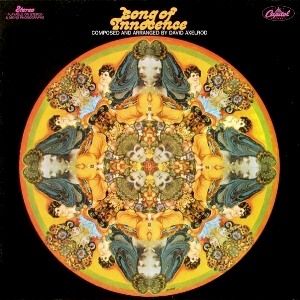
Song of Innocence is the debut album by American composer and producer David Axelrod. It was released in October 1968 by Capitol Records. In an effort to capitalize on the experimental climate of popular music at the time, Axelrod composed the album as a suite-like tone poem interpreting Songs of Innocence, a 1789 illustrated collection of poems by William Blake. Recording took place at Capitol Studios in Los Angeles with an orchestra and studio musicians from the Wrecking Crew collective, including keyboardist and conductor Don Randi, guitarist Al Casey, bassist Carol Kaye, and drummer Earl Palmer.
Celtic fusion is an umbrella term for any modern music which incorporates influences considered "Celtic", or Celtic music which incorporates modern music. It is a syncretic musical tradition which borrows freely from the perceived "Celtic" musical traditions of all the Celtic nations, as well as from all styles of popular music, it is thus sometimes associated with the Pan-Celtic movement. Celtic fusion may or may not include authentic traditional music from any one tradition under the Celtic umbrella, but its common characteristic is the inspiration by Celtic identity.

Asha Puthli is an Indian-American singer-songwriter, producer, and actress, born and raised in Mumbai. She has recorded solo albums for EMI, CBS/Sony, and RCA. Her recordings cover blues, pop, rock, soul, funk, disco, and techno and have been produced by Del Newman and Teo Macero.

Julius Watkins was an American jazz musician who played French horn. Described by AllMusic as "virtually the father of the jazz French horn", Watkins won the Down Beat critics poll in 1960 and 1961 for Miscellaneous Instrument.

Ghetto Gothic is the fifth studio album by Melvin Van Peebles. Released in 1995, this album marks the second traditional music effort by Van Peebles, after What the....You Mean I Can't Sing?! Previously, Van Peebles released the experimental spoken word albums Brer Soul, Ain't Supposed To Die a Natural Death and As Serious as a Heart-Attack.

Kamaal the Abstract is the third studio album by American hip hop artist Q-Tip, released September 15, 2009, on Battery Records. Recorded in 2001, the album is a departure from his solo debut album Amplified (1999). Kamaal the Abstract is an eclectic album that features Q-Tip rapping, singing, and exploring his jazz influences. The album contains introspective and life-related lyrical themes.
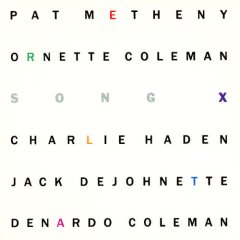
Song X is a collaborative studio album by American jazz guitarist Pat Metheny and saxophonist Ornette Coleman. It is a free jazz record that was produced in a three-day recording session in 1985. The album was released in 1985 by Geffen Records.
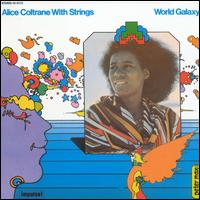
World Galaxy is the sixth solo album by Alice Coltrane. It was recorded in November 1971 in New York City, and was released in 1972 by Impulse! Records. On the album, Coltrane appears on piano, organ, harp, tamboura, and percussion, and is joined by saxophonist Frank Lowe, bassist Reggie Workman, drummer Ben Riley, timpanist Elayne Jones, and a string ensemble led by David Sackson. Violinist Leroy Jenkins also appears on soloist on one track, and Swami Satchidananda provides narration. World Galaxy features a trilogy of original compositions bookended by "My Favorite Things" and "A Love Supreme", two pieces for which her husband John Coltrane was known. It was the second in a series of three albums on which Coltrane appeared with an ensemble of strings.
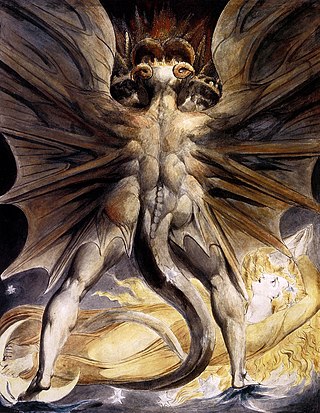
William Blake's body of work has influenced countless writers, poets and painters, and his legacy is often apparent in modern popular culture. His artistic endeavours, which included songwriting in addition to writing, etching and painting, often espoused a sexual and imaginative freedom that has made him a uniquely influential figure, especially since the 1960s. After Shakespeare, far more than any other canonical writer, his songs have been set and adapted by popular musicians including U2, Jah Wobble, Tangerine Dream, Bruce Dickinson and Ulver. Folk musicians, such as M. Ward, have adapted or incorporated portions of his work in their music, and figures such as Bob Dylan, Alasdair Gray and Allen Ginsberg have been influenced by him. The genre of the graphic novel traces its origins to Blake's etched songs and Prophetic Books, as does the genre of fantasy art.
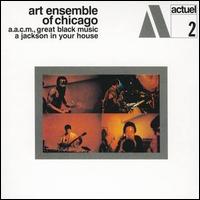
A Jackson in Your House is a 1969 album by the Art Ensemble of Chicago recorded for the French BYG Actuel label. It features performances by Lester Bowie, Joseph Jarman, Roscoe Mitchell and Malachi Favors Maghostut. When issued on CD by Affinity in 1989, the track "The Waltz" was replaced by a six-minute live excerpt entitled "Hey Friend" which has never reappeared on any subsequent reissue.
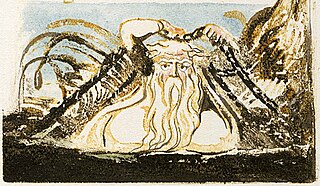
"The Human Abstract" is a poem written by the English poet William Blake. It was published as part of his collection Songs of Experience in 1794. The poem was originally drafted in Blake's notebook and was later revised for as part of publication in Songs of Experience. Critics of the poem have noted it as demonstrative of Blake's metaphysical poetry and its emphasis on the tension between the human and the divine.

Songs of Innocence and Experience is an album by American beat poet and writer Allen Ginsberg, recorded in 1969. For the recording, Ginsberg sang pieces from 18th-century English poet William Blake's illustrated poetry collection of the same name and set them to a folk-based instrumental idiom, featuring simple melodies and accompaniment performed with a host of jazz musicians. Among the album's contributors were trumpeter Don Cherry, arranger/pianist Bob Dorough, multi-instrumentalist Jon Sholle, drummer Elvin Jones, and Peter Orlovsky – Ginsberg's life-partner and fellow poet – who contributed vocals and helped produce the recording with British underground writer Barry Miles.



















